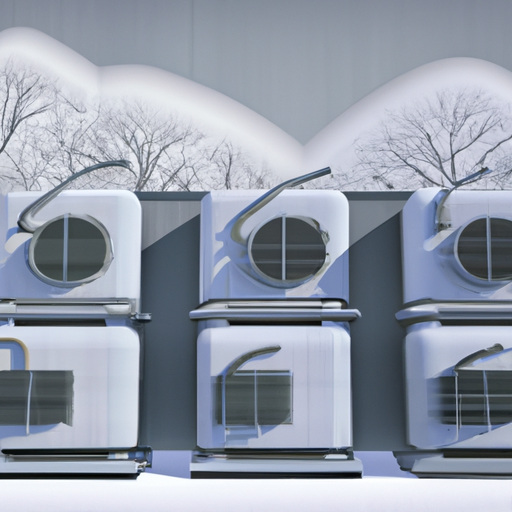The quest for more efficient home heating solutions in cold climates has taken a significant leap forward. The Department of Energy‘s initiative to foster the development of heat pumps capable of operating in chillier environments has welcomed four new manufacturers into the fold. These companies have crafted prototypes that meet rigorous standards, indicating progress in the DOE’s Residential Cold Climate Heat Pump Challenge.
Stringent Requirements for Enhanced Performance
The DOE’s challenge isn’t just a call for innovation but a dare to redefine the boundaries of heat pump technology. The heat pumps crafted for this competition must deliver unwavering heating ability in freezing conditions, maintaining full operational capacity without auxiliary input even when external temperatures plummet. These prototypes are expected to boast unparalleled efficiency at 5 degrees Fahrenheit (-15 degrees Celsius) and strive to function in the even more extreme cold of -15F (-26C), amongst a set of additional criterions visible in the challenge’s fact sheet.
Industry Leaders Rising to the Challenge
Among those answering the DOE’s call is Johnson Controls, having recently announced a prototype that defies expectations by performing under freezing conditions, reaching a remarkable -20F (-29C). The roster of participants includes prominent names like Bosch, Daikin, and Midea, joining forces with early adopters like Lennox International, Carrier, Trane Technologies, and Rheem. These trailblazers have graduated from the laboratory phase with flying colors and are poised to embark on rigorous field testing across North America, with over 23 prototypes set for installation.
Towards a Future of Sustainable Home Heating
The DOE isn’t merely spearheading technological breakthroughs; it’s strategically planning for the swift integration of these climate-resilient heat pumps into the market this very year. Collaborating with a robust network of states, utility providers, and other stakeholders, the department is laying the groundwork to promote the adoption of these robust home heating alternatives.
Economic and Environmental Benefits of Adoption
The switch to cold-climate heat pumps isn’t just good for the planet—it’s great for homeowners’ wallets as well. On average, households can see an annual reduction of over $500 in utility expenses. Aiding in this economical transition are incentives such as the Inflation Reduction Act’s Energy Efficient 25C Tax Credit. This incentive offers a tantalizing 30% tax credit for heat pump installation, with a maximum benefit of $2,000 per annum.
Moreover, the advantages tilt even more favorably for those in low-income brackets. The upfront Electrification Rebates aim to cover the entire cost of heat pump installations up to $8,000 for households earning below 80% of their area’s median income. Moderate-income families, with earnings between 80-150% of the median, can anticipate rebates covering half of their installation expenses, also up to $8,000. This financial assistance structure affirms the DOE’s commitment to equitable access to sustainable energy solutions.
The integration of these energy-efficient heat pumps represents more than just technological advancement; it is a stride towards sustainability, economy, and equitable energy consumption for future generations.
